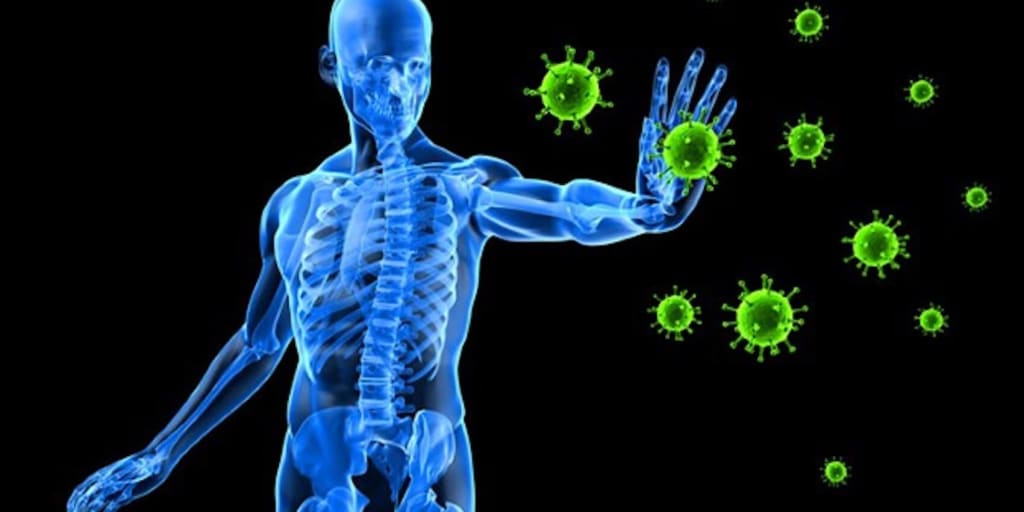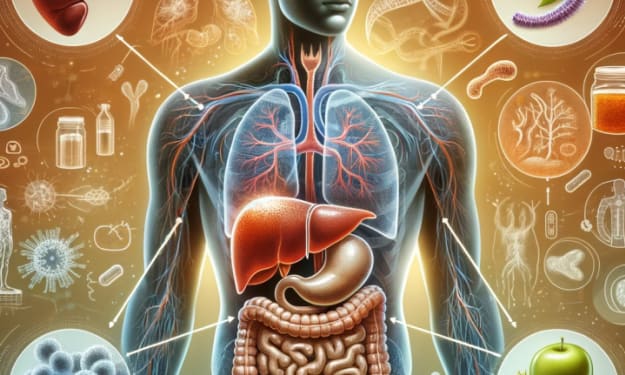Immune system
Five essentials to stay strong and healthy

The body reacts daily to attacks of bacteria, viruses and other microbes through the immune system. Very complex, this barrier is composed of millions of cells of different types and with different functions, responsible for ensuring the body's defense and keeping the body functioning free of disease.
The immune system is a system of biological structures and processes with the purpose of protecting the body from organisms such as viruses and bacteria, allowing a distinction between these agents and the healthy tissue of the body itself. Changes in the immune system can lead to autoimmune diseases, inflammation, cancer or immunodepression.
Components of the immune system
White blood cells: macrophages, neutrophils and lymphocytes, cells that fight agents such as viruses and bacteria.
Antibodies or immunoglobulins: proteins that interact with the antigen and initially stimulate the T lymphocytes. There are five classes of antibodies: IgM, IgG, IgA, IgE and IgD.
Complement system: destroys foreign substances directly or in conjunction with other components of the immune system, such as white blood cells.
Cytokines: cytokines behave like the messengers of the immune system.
Major histocompatibility complex (MHC): a group of important molecules that help the body distinguish between what is proper and what is foreign.
The immune system is the first line of defense against any disease. In times of pandemic, it is even clearer that we must do what we can to stay healthy.
The immune system is designed to defend the body against foreign or dangerous invaders. Such invaders include
Micro-organisms (commonly called germs, such as bacteria, viruses and fungi)
Parasites (like worms)
Cancer cells
Transplanted organs and tissues
In order to defend the body against such invaders, the immune system must have the ability to distinguish between
What belongs to the organism (the body itself)
What does not belong (not to the body or stranger)
Antigens are any substance that the immune system can recognize and thus stimulate an immune response. If the antigens are perceived to be dangerous (for example, if they can cause disease) they can stimulate an immune response in the body. The antigens may be in bacteria, viruses, other microorganisms, parasites or cancer cells. Antigens can also exist autonomously, such as pollen or food molecules.
A normal immune response consists of the following:
Recognizing a potentially harmful foreign antigen
Activate and mobilize forces to defend against the antigen
Attack the antigen
Control and finalize the attack
If the immune system has a dysfunction and confuses the body itself with something not belonging to the body, it can attack the body's own tissues, causing an autoimmune disease such as rheumatoid arthritis, Hashimoto's thyroiditis or systemic lupus erythematosus (lupus).
Immune system disorders occur when
The body generates an immune response against itself (an autoimmune disease).
The body cannot generate appropriate immune responses against the microorganisms that invade it (an immunodeficiency disease).
The body generates an excessive immune response to antigens that are often harmless and damage normal tissues (an allergic reaction).
Ensuring that you follow a varied diet and receive the recommended daily dose of essential nutrients is crucial to creating and maintaining a solid immunity.
Nutritionist James Collier has defined five essential nutrients to stay strong and healthy.
Vitamin D
Our body can produce vitamin D from sunlight, which helps strengthen white blood cells to protect the body from 'invaders'. If you're not spending too much time in the sun, know that you can get this vitamin from supplements or foods like salmon and eggs.
Vitamin C
Vitamin C helps support the production and function of the body's white blood cells that attack bacteria and viruses. Vitamin C can be found in many foods, such as citrus fruits.
Essential fats
Omega-3 and omega-6 fats help regulate the immune system and are found in many foods, including fatty fish, nuts and seeds.
Water
Drinking plenty of water is crucial to maintaining a strong immune system. If you are dehydrated, it will produce less mucus, and that means you will be less protected.
Protein
Protein is known for its ability to help build muscle, but it is also vital to support immunity because it is necessary to repair damaged tissue.
About the Creator
Fernanda Manuela Tomas Viegas
I'm a curious person. Love to read, i love to write and i love to tell stories, speacelly when we have small children






Comments
There are no comments for this story
Be the first to respond and start the conversation.